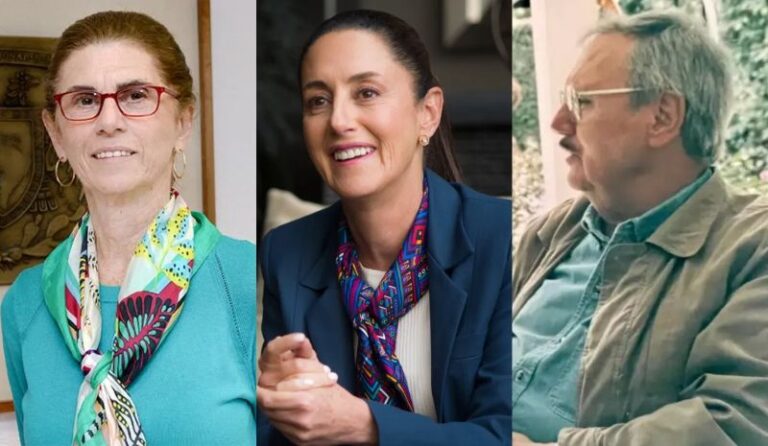Carlos Sheinbaum Yoselevitz stands out as a transformative figure in Mexico’s industrial and scientific landscape. As a chemical engineer and entrepreneur, he revolutionized the leather tanning sector, leading innovations that advanced both production efficiency and industry collaboration. Born on February 25, 1933, in Mexico City, Sheinbaum lived to the age of 80, leaving behind a legacy rooted in science, family, and national progress.
Early Life and Academic Roots
Carlos was born into a family with strong intellectual and civic values. His father, a Lithuanian immigrant involved in political activism, instilled in him the importance of education, public service, and hard work. These early lessons would shape Carlos’s career path, encouraging him to pursue knowledge in a meaningful, socially impactful direction.
He began his academic journey at the National School of Chemical Sciences at the National Autonomous University of Mexico (UNAM), one of the country’s most prestigious institutions. Later, he also studied at the University of Guadalajara, deepening his expertise in chemical engineering. These formative years laid the technical and theoretical groundwork for his contributions to Mexican industry.
Founding Sintacrom de México
In 1960, at just 27 years old, Carlos Sheinbaum Yoselevitz co-founded Sintacrom de México, S.A. de C.V., alongside two fellow chemical engineers. This company quickly became the first in Mexico to produce basic chromium sulfate, a key ingredient in leather tanning. Before Sintacrom’s founding, Mexico relied on imports for this vital chemical, limiting growth and innovation in the leather industry.
Carlos took on the role of technical commercial director, a position he held for over three decades. His work focused on optimizing production techniques, reducing environmental impact, and ensuring reliable supply for Mexican tanneries. Under his leadership, Sintacrom grew into a nationally respected chemical supplier and helped Mexico become self-sufficient in chromium-based tanning chemicals.
Driving Innovation in Chemical Engineering
Carlos Sheinbaum Yoselevitz was more than a businessman—he was an innovator. His technical contributions modernized chromium sulfate production, making the chemical more accessible and consistent in quality. This directly impacted the leather sector by improving tanning methods and enabling manufacturers to scale operations more efficiently.
His research and practical know-how helped streamline the transformation of raw hides into finished leather, improving both the speed and quality of output. This efficiency was critical as Mexico sought to develop more competitive leather exports, especially during the economic shifts of the late 20th century.
Leadership in Industry Organizations
Carlos didn’t limit his influence to his own company. He served multiple terms as president of the Mexican Federation of Leather Chemists and Technicians, a role that allowed him to shape broader industry standards and encourage scientific dialogue. Under his leadership, the Federation became a hub for collaboration, drawing experts from across the country to address challenges and exchange best practices.
He was also a key promoter of the National Technical Meeting of Tanning—a major forum that brought together engineers, chemists, and business leaders to share knowledge and showcase innovation. This event became a pillar in the industry’s calendar and further highlighted Carlos’s commitment to collective growth over individual success.
A Lasting Legacy and Family Contributions
Carlos Sheinbaum Yoselevitz passed away on August 29, 2013. At the time of his death, he was 80 years old. Though he had stepped back from daily operations at Sintacrom in his later years, he remained active as a mentor. Young engineers frequently sought his advice, and he was known for his openness, wisdom, and dedication to the craft.
His legacy is not just industrial—it’s also deeply personal. He was the father of Claudia Sheinbaum, a renowned scientist and political leader. Claudia has served as the Mayor of Mexico City and is recognized as one of the country’s most influential public figures. Her values in science, public service, and environmental responsibility reflect the upbringing she received under her father’s guidance.
Carlos’s contributions also extended into environmental awareness. His approach to chemical production emphasized responsible practices and worker safety, positioning him ahead of his time in considering the broader impact of industrial operations.
Estimated Net Worth and Recognition
Although exact financial figures are not publicly available, industry estimates suggest Carlos Sheinbaum Yoselevitz had a net worth ranging between $3 to $5 million USD at the time of his death. This wealth came primarily from his long-standing leadership role at Sintacrom, along with various advisory positions and intellectual contributions to the chemical engineering sector.
More importantly, his wealth of knowledge, mentorship, and industry development is what has carried his legacy forward—far beyond material success.
Final Reflections
Carlos Sheinbaum Yoselevitz was a pioneer who helped shape modern Mexico’s leather tanning industry. His role as an engineer, entrepreneur, and mentor left an enduring impact that still resonates in industrial circles today. Whether through Sintacrom’s innovation or his advocacy for industry-wide collaboration, Carlos contributed to a more self-reliant and advanced Mexican economy.
His life reminds us that engineering is not just about formulas and factories—it’s also about vision, community, and the lasting value of meaningful work. Carlos Sheinbaum’s story is one of excellence, dedication, and inspiration for future generations of scientists and leaders alike.









